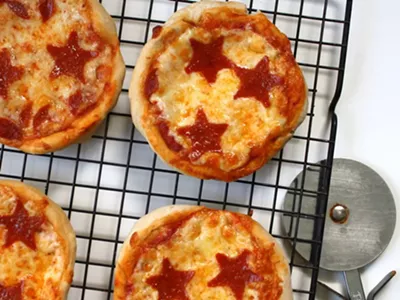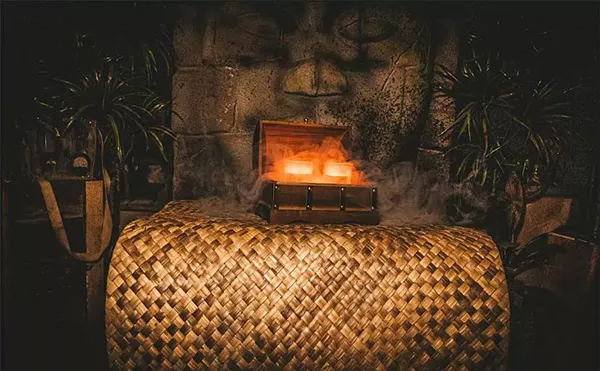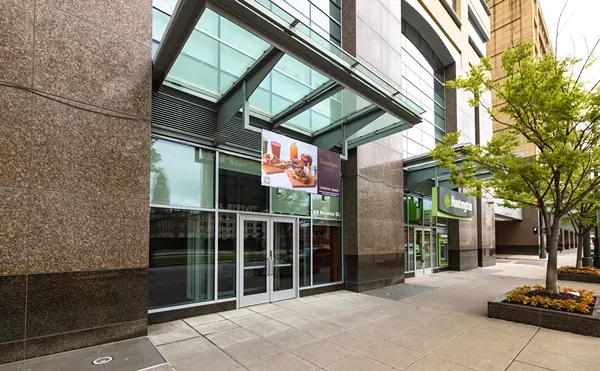Review: Prince's Lebanese bakery makes some of metro Detroit's best pizzas and pies
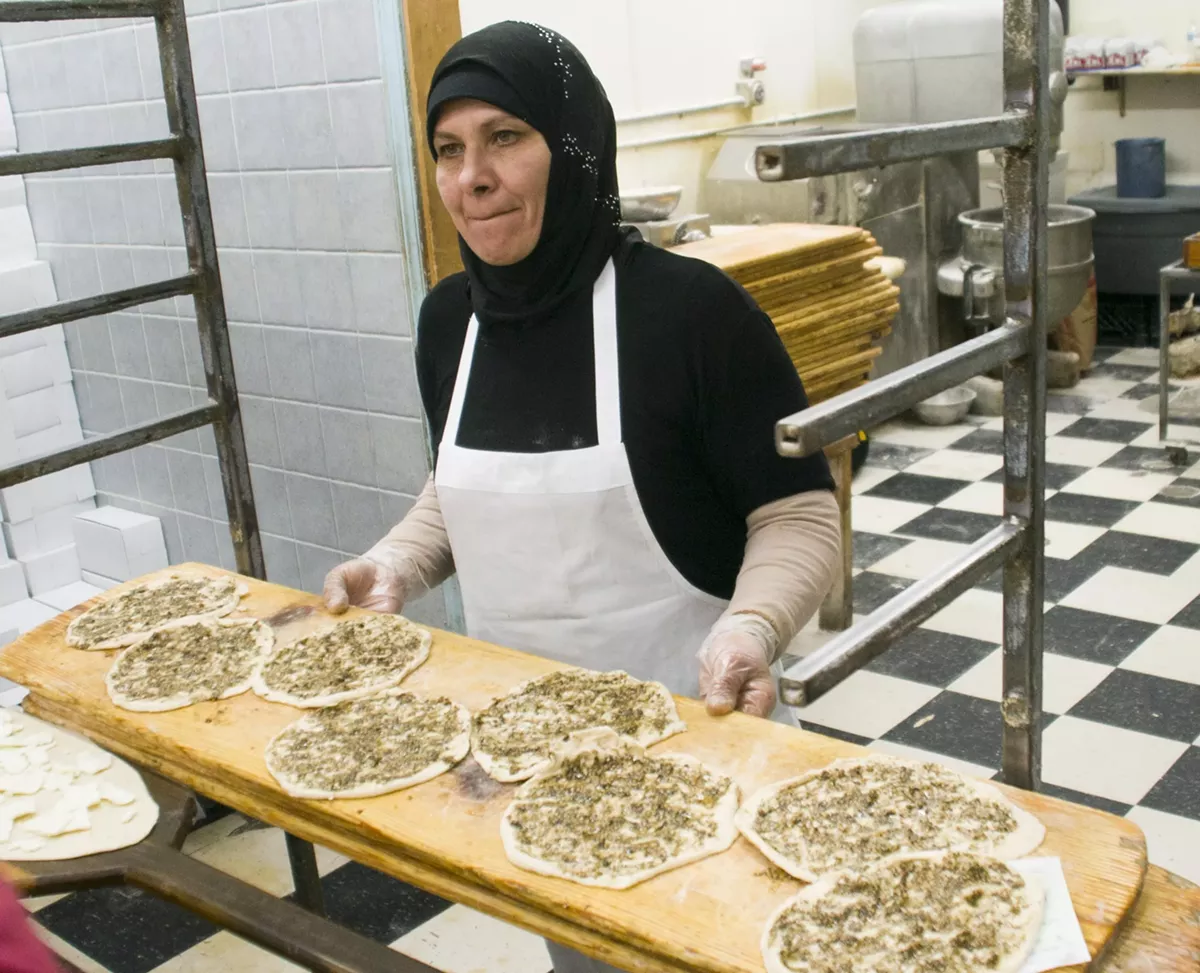

Audio By Carbonatix
[
{
"name": "GPT - Leaderboard - Inline - Content",
"component": "35519556",
"insertPoint": "5th",
"startingPoint": "3",
"requiredCountToDisplay": "3",
"maxInsertions": 100,
"adList": [
{
"adPreset": "LeaderboardInline"
}
]
}
]
(See more photos of Prince's pizzas and pies here)
Is there a better, more lively food neighborhood in metro Detroit than that along Warren Avenue in Dearborn? Arguably, no. The proof is in the James Beard award-winning Al Ameer; the flavors of Aleppo, Syria at Al Chabab; the kebabs at the Dearborn Meat Market and other halal butchers; and in the dozens of restaurants trading in Lebanese, Iraqi, and other Middle Eastern nations' cuisines. Indeed, there's a case to be made that Warren Avenue has more menu depth than any one of downtown Detroit's hip neighborhoods.
And perhaps the best part of the stretch is one of its more underrated components – the Lebanese bakeries, of which there are many. In Lebanon, such bakeries populate every neighborhood, and they've proliferated along Warren over the recent decades. While their menus cover a lot of the same turf, there's always one in the bunch that does it better, and the best of the area's savory pies and pizzas are found in Prince's Bakery's oven.
Father and son Ali and Hussein Saad opened their small shop in 1997 and set it apart in several ways. The filling in their meat and spinach pies — for several reasons — pops with more flavor. And those fillings arrive in any number of doughy vessels that bake in around a minute in Prince's open flame oven that's in excess of 750 degrees. The roughly one-minute run in the high heat ensures that the dough retains moisture and doesn't dry out. It's a similar approach to the Neapolitan brick oven, and is why Prince's meat and spinach pies have such light and soft dough.
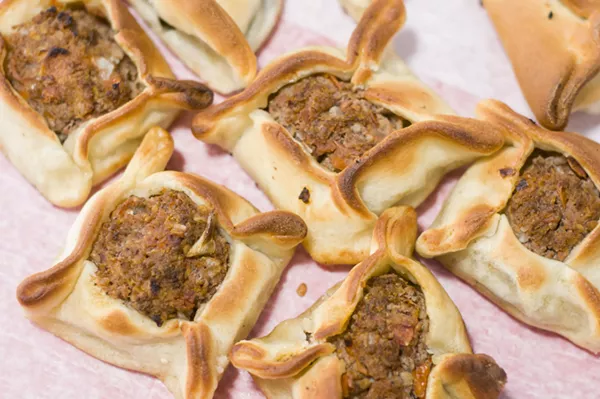
When you visit, the best place to start is the sfeeha — meat pies — which the Saads say is their claim to fame, and an informal taste test of every bakery on Warren reveals why. The mini beef pies are a small, nearly pyramid-shaped pastry that cradles a big, red Lebanese meatball. Prince's packs the tender minced meat with plenty of sauteed onion, garlic, tomatoes, and a seven-spice blend of salt, black pepper, cardamom, and more. Like a lot of Lebanese meat, it's a slightly sweet but mostly savory package, and it's more moist at Prince's because of the quick trip through the oven.
The same meat is also spread across a thin disc of Lebanese flatbread called manoush that's about six inches in diameter, crisp on the outside, and soft in the middle. A similar, longer version called mashrouha is essentially the same thing, but the latter is folded and cut into pieces. The Saads also utilize the manoush to deliver their za'atar, a staple spread as common to Lebanon as mayonnaise is to the U.S. It's a strong, dark green and yellow-tinged mix of olive oil, sesame seeds, thyme, sumac, oregano, and other spices. Though Hussein says that each Lebanese village holds its own za'atar recipe, and each bakery in Dearborn follows suit.
The triangular, small spinach pies called sabanaekh are also a staple in Lebanese bakeries. They're among Prince's bestsellers, and they also stand as the best on Warren. That's a result of a sour and moist mix of sautéed spinach and onions flavored with olive oil, salt, and sumac, all of which comes encased in a soft, puffy dough pouch. A more mellow variation is found in the turnovers, which are slightly larger and stuffed with sautéed spinach, broccoli, and cheese.
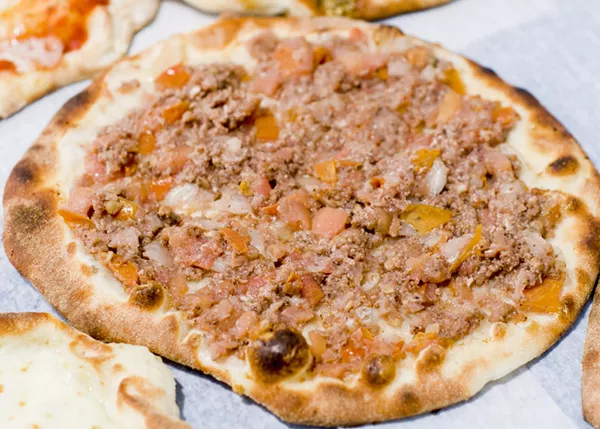
Up to this point, the recipes are traditional. But the pizza portion of the "menu" (there isn't actually a menu — you come in and point to which items among the smorgasboard get your attention) is where there's a more American element. Add a layer of mozzarella to your six-inch manoush with meat or za'atar, for example, and you enter "fusion" territory. That's OK — the za'atar is intense, and a taming layer of cheese works well.
But Prince's is also serving straight-up pizza, as are many Lebanese-American bakeries. The pizzas on Warren live and die by the quality of the crust, and the manoush at Prince's is superior. A bite offers a thin, crunchy layer that's followed by a light, soft interior with a little stretch and a lot of flavor. And though the crust is crisp, it's not totally charred, but displays the "leopard printing" that's the mark of a good crust. There are usually a few pizza options to choose from with toppings like black olives, tomatoes, and peppers. The Saads also bake a pepperoni roll for meat eaters.
Hussein Saad says the shop started selling pizzas after he went to a brick oven pizzeria and got what he describes as "the worst pizza of my life." Convinced he could do better, he went to the shop the next day and started pounding out pizzas to go with the Lebanese pies. The customers love it, and Ali Saad says it's a business move that especially attracts the second-generation of Lebanese immigrants.
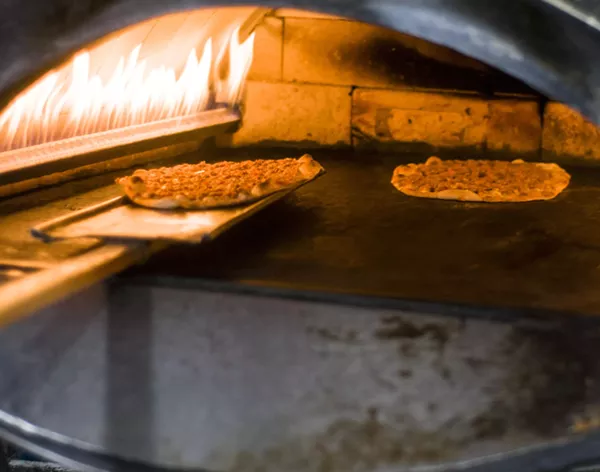
Beyond the pizzas and pies, Prince's bakes soft croissants filled with cheese, spinach or za'atar. And sweet turnovers filled with strawberry and other fruits compose the dessert menu. The small, basic shop is mostly carryout, though there's one long table for dining in that customers regularly put to use. A couple coolers hold sodas, juices, bottled water, and yogurt drinks, and though the shop fills up in the morning and around lunch, you usually won't wait more than 10 to 15 minutes.
But perhaps the best part is the price. Even a broke person who foolishly chose journalism as a career can order at Prince's and walk away with a feast-in-a-box for under $10. And this isn't mere dollar menu fare — these are some of the best bites in a stretch that's arguably Michigan's best food neighborhood.


